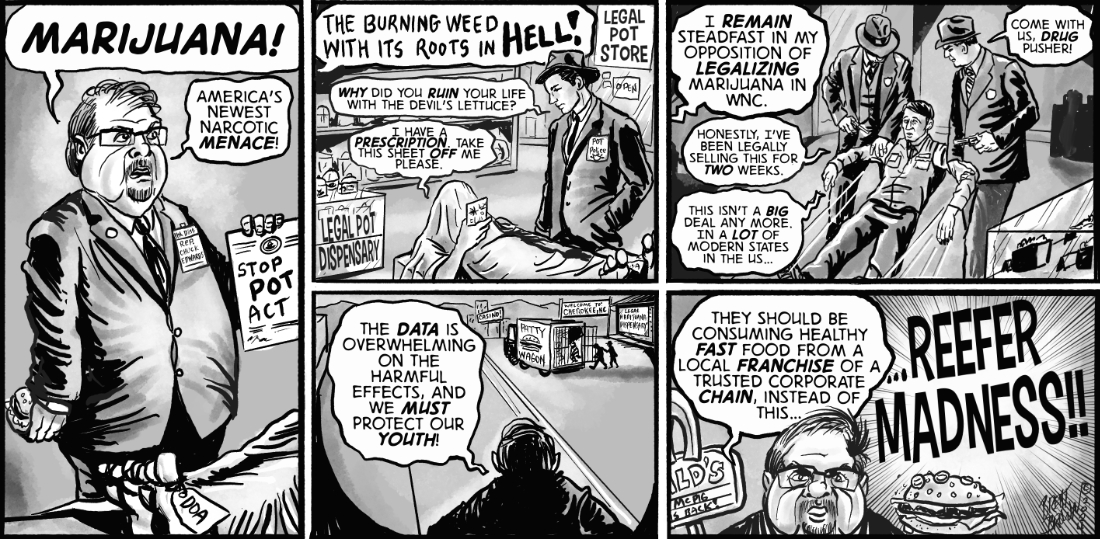Maryland is pardoning 175,000 marijuana convictions. It's part of a trend
 Gov. Wes Moore, center, holds an executive order authorizing pardons for at least 175,000 criminal convictions related to marijuana. Legalization, Moore said, “doesn't erase the fact that Black Marylanders were three times more likely to be arrested for cannabis than white Marylanders before legalization."
Gov. Wes Moore, center, holds an executive order authorizing pardons for at least 175,000 criminal convictions related to marijuana. Legalization, Moore said, “doesn't erase the fact that Black Marylanders were three times more likely to be arrested for cannabis than white Marylanders before legalization."
Maryland Gov. Wes Moore is absolving people convicted of more than 175,000 cannabis-related crimes, in what the governor called “the most sweeping state level pardon in any state in American history.”
The large-scale absolution comes a year after Maryland legalized recreational marijuana use. The lion’s share of the cases are misdemeanors: More than 150,000 convictions are for possession of cannabis, and more than 18,000 convictions are for possession with intent to use drug paraphernalia.
“We cannot celebrate the benefits of legalization if we do not address the consequences of criminalization,” Moore, a Democrat, said before signing an executive order issuing the pardons on Monday.
The governor’s office did not specify how many people would be affected by the pardons, noting that one person could have multiple eligible convictions. And while the initial tally focuses on cases in the state’s computerized system, people with records that predate the system could also seek to have even decades-old convictions absolved....
States increasingly forgive low-level drug offenses
Maryland is one of 24 states, plus the District of Columbia, where adult recreational use of cannabis has been legalized. In nearly every case, momentum toward legalizing marijuana has also brought efforts to repair direct and collateral damage done by earlier drug laws.
Hundreds of thousands of marijuana-related criminal convictions have been forgiven, cleared, sealed or expunged altogether, according to NORML, the group that has long advocated to legalize marijuana nationally.
In some states, expungement is required by constitutional amendments legalizing cannabis. The action is more far-reaching than a pardon, as it removes a criminal conviction from the public record entirely.
The states take different methods to clear criminal records; those with automatic expungement processes, such as California and Illinois, have handled massive amounts of cases. But the time frame for that process can span years, depending on the date and nature of the offense....
What’s next?
...Moore pledged last year that Maryland’s new cannabis policies would encourage social equity and restorative justice as it launched a state recreational market. While pardons are part of that plan, so are economic opportunities.
“In March, we conducted our first adult use cannabis licensing round, and all 174 licenses were awarded exclusively to social equity applicants,” Moore said on Monday. “And to be clear, that's the first time that that has happened in our nation's history.”
 x 175,000. I'm proud of my former home. A pardon could have very easily applied to teen Vrede too
x 175,000. I'm proud of my former home. A pardon could have very easily applied to teen Vrede too 


